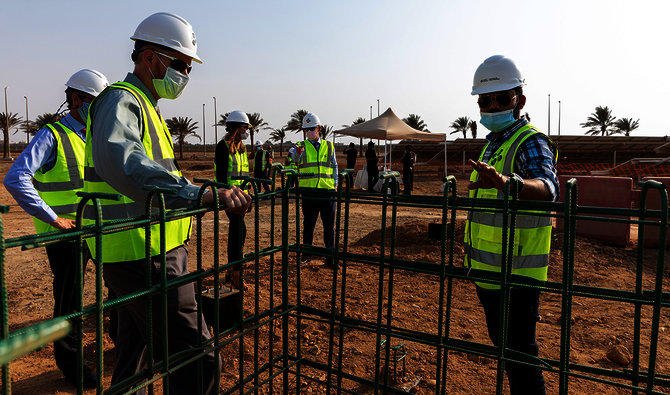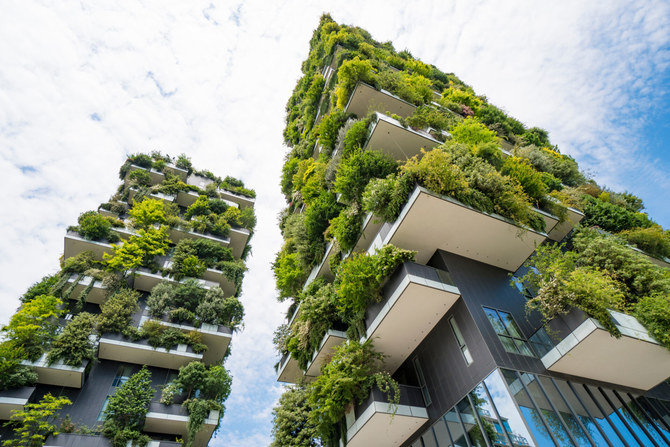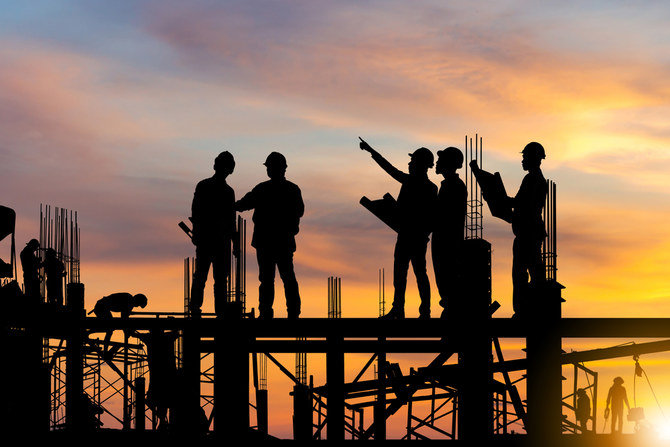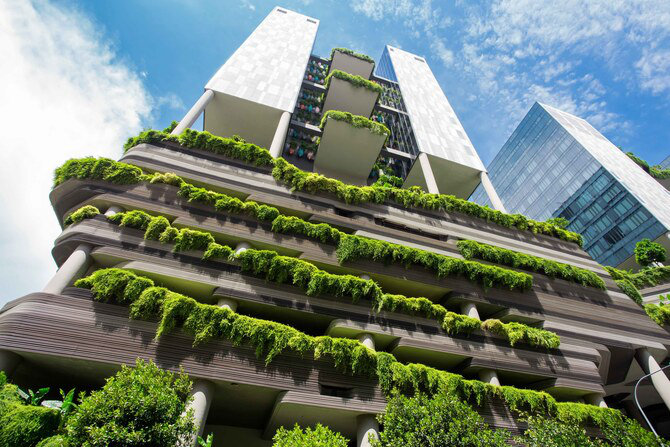The “Saudi–French joint committee” reflects the common ambition to strengthen the Franco-Saudi strategic partnership and deepen our special relationship through the improvement of France’s trade and investment relationship and the identification of a new cooperation prospects within the framework of the National Transformation Program 2020 adopted by the Kingdom to implement the Saudi Vision 2030.
More than 600 people took part in the first Saudi-French business forum in Paris.
The second one in October 2015 was organized in Riyadh with the presence of French Prime Minister Manuel Valls.
More than 2000 participants were registered and 130 French firms came to the event: It was the biggest business delegation to visit the Kingdom.
They have shown a real interest in the Saudi market. The third one should take place next fall.
Indeed, France supports the Vision 2030. It is the occasion to show another face of the Saudi-French partnership by providing know-how transfer and capacity building.
For example, France works on energy but also in transportation: In their offer for the Makkah Metro Project, Alstom has included a proposal to build a regional hub in the Kingdom for the transportation industry. It means France is keen to promote localization.
French groups are dedicated to hire more and more young Saudi nationals and to welcome more students.
Furthermore, France is the first touristic destination in the world that draws more than 80 million tourists per year and tourism industry is another field of common interest to discuss.
Financial services are another field of French excellence that has to be shown in the Kingdom and can also contribute to achieve the target of “a country of investment”.
During Deputy Crown Prince Mohammed bin Salman’s visit in Paris in last June, France and the Kingdom discussed several contracts and agreements in various fields such as defense, energy, health care, agriculture, transportation and infrastructure, culture, education and sport as well as sciences and technology, information, environment, housing, tourism and heritage.
A certain numbers of agreements and contracts are expected to be signed during the next session of the “Saudi – French joint committee”.
2016 Statistics of bilateral trade between France and Saudi Arabia
Although it is too early to announce statistics for 2016, it can be said that the bilateral trade between France and the Kingdom is going well.
As far as 2015 is concerned, France’s exports to Saudi Arabia increased by 6 percent up to 3.1 billion euros.
Conversely, our imports contracted by 25 percent to 5.3 billion euros because of the lower oil price.
With $15.3 billion of French foreign direct investment (FDI) in Saudi Arabia, France is the third biggest investor in the Kingdom.
More than 80 French subsidiaries have an active presence in Saudi Arabia, and most of the big groups of CAC40 (Paris Index) are represented in the Kingdom.
They employ about 27.600 people, including 10 000 Saudi nationals, a Saudization rate of 36 percent much higher than the average of the Saudi economy (16 percent).
Twenty-four Saudi companies are located in France (mostly by acquiring existing entities).
They employ 3200 persons directly and achieve a combined turnover of approximately EUR 350 million.
Saudi Vision 2030 and the National Transformation Plan will offer a lot of opportunities to develop new partnerships in many different fields: from tourism and culture to mining, including energy, transportation, agriculture, health, housing and many more, France is committed to bring the best of its technologies and know-how to accompany the Kingdom in its ambitious transformation program and to make it a success.
Paris can offer its expertise in privatization programs, especially in the water sector to Saudi Arabia.
Indeed France has long experience in PPP and privatization as it was the first country in the world to implement PPP in the 19th century with the first concessions for the water distribution networks.
French companies and state entities also have a long experience in privatization since the beginning of the 80s. France was at that time in the same configuration as the Kingdom today and can now share experiences in many fields such as energy, water, transportation and IT services for example.
An institutional cooperation could be implemented with ministries and national agencies.
France is one of the largest European countries that import large quantities of oil from Saudi Arabia.
Saudi Arabia is first partner of Paris in the region and France is one of the leading European countries importing Saudi crude.
French imports are mainly composed of oil and oil products and France’s bilateral trade is in favor of the Kingdom.
Saudi investments in France
One of France’s priorities is to increase and diversify Saudi investments in France which total less than 1 billion euros, and are mostly directed toward real estate.
France is the leading destination for foreign investment in industry and the fourth largest FDI receiver in the world.
The entrepreneurial and innovation policy is also proving effective, since France has been ranked as the leading country for R&D support and for newly founded businesses.
By easing the entrepreneurial process and fostering innovation, the French industry offers a lot of different investment opportunities for Saudi investors (public and private), and represents a major know-how transfer potential in a long term cooperation perspective.
French companies ready to participate in Saudi Arabia’s needs for solar plants.
Indeed, Energy sector is a cornerstone of our strategic partnership.
Various French companies are willing to work with Saudi Aramco, Saudi Electricity Company and KACARE.
Many delegations came to the Kingdom in order to work on renewable energy especially for solar projects.
The role of France to reduce carbon impact all over the planet must be reminded. Indeed, the COP 21 was a great success and Paris is determined to pursue those efforts by offering the best solutions. TOTAL, EdF and numerous groups already made proposals to work on solar investments.
Saudi housing projects
In this framework, French companies can also contribute to the Saudi housing projects by bringing their experience (delivery housing units on an industrial scale since the 50s), knowhow (rich eco-system of companies) and new technologies (smart cities, Internet of things, good build materials, etc…) in order to tackle the growing need of housing units in the Kingdom but also to have energy efficient units.
To build smart should be as important as to build quick and affordable.
France can contribute to the changing landscape of subsidies as described in the National Transformation Plan.
Thus, cheaper access to housing units for nationals of low and middle income categories will not comply with the Vision 2030 if these units perform poorly in operating cost notably for the end user when he will have to pay for electricity and water.
A common ambition to strengthen Saudi-French strategic partnership
A common ambition to strengthen Saudi-French strategic partnership

KSrelief continues global humanitarian activities

RIYADH: The King Salman Humanitarian Aid and Relief Center (KSrelief) continues with its global humanitarian activities including the distribution of basic food items, clothing vouchers as well as the provision of emergency services.
In Pakistan’s Shahdadkot area of Sindh province, the aid agency on Wednesday handed out 1,050 food boxes benefiting 6,524 individuals who mostly have been affected by floods.
In Yemen, KSrelief on Thursday distributed 1,247 double desks, 560 single desks, 56 wheelchairs, computers and office supplies to support 35 centers for people with disabilities and 26 adult education schools across several Yemeni governorates.
The latest initiative is part of the second phase of the project on local capacity building for educating illiterate students and people with disabilities in the governorates of Aden, Hadramout, Dhale, Lahij, Shabwa and Al-Mahra.
In Sudan, 40 tonnes of dates were distributed in Wad Madani, Gezira State as part of a larger project to share 441 tonnes of dates to the most vulnerable families in the states of Kassala, Gedaref, Red Sea, River Nile, Blue Nile, White Nile, Sennar and Gezira.
In the northern Gaza Strip, KSrelief collaborated with the Saudi Center for Culture and Heritage to provide shelter bags for Palestinian people and assist them in rebuilding their damaged homes and property resulting from over 15 months of war.
In Poland, the aid agency recently concluded a volunteer prosthetic project and was able to provide 30 prosthetic limbs to Ukrainian refugees from January 15 to January 21.
In Jindires of Syria’s Aleppo governorate, shopping vouchers were given to 1,288 beneficiaries for them to purchase winter clothing from designated stores.
Meanwhile, the ambulance service of Subul Al-Salam Social Association in the Miniyeh district of north Lebanon – which is funded by KSrelief – carried out 82 missions during the past week.
The services, which included transporting patients to and from hospitals and treating burn injuries, were provided to Syrian and Palestinian refugees and the local community.
How Saudi Arabia is making the construction industry greener and more sustainable

- The Kingdom is advancing green construction techniques with cutting-edge technologies, local partnerships, and regulatory support
- Red Sea Global, SCG International, VEKR Environmental Services, and SABIC are setting the standard for sustainable construction
RIYADH: Saudi Arabia is embracing sustainability as a core element of its Vision 2030 economic reform agenda, driving transformative practices across whole industries.
Nowhere is this more evident than in the Kingdom’s construction sector, where innovative solutions and eco-conscious strategies are reshaping the urban landscape.
Through cutting-edge technologies, collaborative efforts and the adoption of environmentally responsible materials, companies like Red Sea Global, SCG International, VEKR Environmental Services and SABIC are setting a high standard for sustainable development.

Red Sea Global has made environmental stewardship a priority across its mega-projects, ensuring that development enhances rather than disrupts the delicate ecosystem.
“At Red Sea Global, we have initiated several critical programs to safeguard endangered species such as the hawksbill turtles and sooty falcons,” Raed Al-Basseet, RSG’s group chief environment and sustainability officer, told Arab News.
“These efforts include habitat conservation, the protection of turtles’ nesting sites, and tagging programs to monitor their behaviors. On birds, we’ve established artificial nesting sites for the sooty falcon and implemented preventive measures to mitigate bird collisions.”

The organization has also embraced advanced technologies to protect marine ecosystems.
“RSG is leveraging state-of-the-art technologies, including drone surveys equipped with multispectral cameras and satellite imagery for coral reef mapping,” Al-Basseet said.
These tools ensure the real-time monitoring of coral reefs, mangroves and seagrasses, while helping respond swiftly to environmental changes.
DID YOUKNOW?
• Saudi Arabia’s construction sector produces about 38% of the Kingdom’s carbon emissions, highlighting the critical need for sustainable practices.
• Mangroves, like those planted by RSG, can sequester up to 10 times more carbon per hectare than tropical rainforests.
• LEED Gold-certified buildings, like SABIC’s Jubail headquarters, consume 30% less energy than traditional buildings.
• 3D-printed construction reduces material waste by up to 60%, significantly lowering environmental impact.
RSG’s achievements extend beyond conservation. The company’s renewable energy initiatives have resulted in the installation of more than 760,500 solar panels, reducing CO2 emissions by 46,350 tonnes annually.
Additionally, its mangrove nursery produced more than 1 million seedlings in 2024, with a target of reaching 3 million this year.
“Our commitment to achieving a net conservation benefit of 30 percent by 2040 is integral to our vision of creating harmonious development,” Al-Basseet added.
Another key player in Saudi Arabia’s sustainability journey is SABIC, a global leader in materials innovation and environmental solutions.

SABIC’s Jubail headquarters, which has been certified with LEED Gold, stands as a symbol of green construction.
The building incorporates solar energy systems, wind turbines and electric vehicle charging stations, while also utilizing water recycling systems and low-energy lighting controls.
Beyond infrastructure, SABIC is pioneering efforts in carbon capture and utilization. The company operates the world’s largest CO2 purification and liquefaction plant, capturing 500,000 tonnes annually to convert into valuable products such as methanol and ammonia.
These initiatives reflect SABIC’s broader goal of achieving carbon neutrality by 2050, with an interim target of reducing greenhouse gas emissions by 20 percent by 2030.
Opinion
This section contains relevant reference points, placed in (Opinion field)
In addition to these efforts, SABIC has launched a circular carbon economy model, promoting renewable energy, chemical recycling and afforestation projects.
The company’s recent exports of low-carbon ammonia to global markets, including Japan and South Korea, highlight its leadership in sustainable industrial practices.
Sustainability in construction is not just about preserving nature but also about adopting technologies that redefine how buildings are constructed. SCG International, a global leader in green building solutions, is paving the way for technological innovation in the Kingdom.
“3D printing technology enables accelerated construction timelines, reducing time by up to 30 to 50 percent and labor requirements by 50 percent,” Abhijit Datta, managing director of SCG International, told Arab News.
“It significantly reduces material waste and ensures no leftover raw materials, contributing to a cleaner and safer working environment, by lowering dust and noise levels.”
Among its innovations, SCG’s concrete fabric offers a sustainable solution for erosion control and water management.
“This flexible material conforms to various shapes, reducing logistics costs and emissions while ensuring durability,” Datta said.

(Shutterstock)
The company’s commitment to local empowerment is equally noteworthy. SCG actively collaborates with Saudi firms to train teams in low-carbon cement and ready-mix consultancy services.
Despite recent progress, the adoption of sustainable construction technologies has faced difficulties.
“One of the primary challenges is the high upfront cost of sustainable building practices, which can be a concern for clients,” Dana Al-Damegh, an environmental consultant at VEKR Environmental Services, told Arab News.
“Many are not fully aware of the long-term benefits, including cost savings and enhanced efficiency, that sustainable materials can offer.”
Another pressing issue is the scarcity of resources.

“There is currently a shortage of locally sourced materials, which poses a challenge to sustainable construction efforts,” Al-Damegh said.
“This scarcity extends to skilled manpower as well, which further impacts the ability to fully leverage local resources. Addressing these gaps is crucial for achieving greater sustainability in the sector.”
Nonetheless, Al-Damegh is optimistic about the future. “The collaboration between environmental services companies and regulatory bodies has been instrumental in driving progress,” she said.
As the Kingdom advances its Vision 2030 reform agenda, the focus on green construction continues to grow. The integration of advanced technologies, development of local supply chains and investments in education as well as training will be critical to scaling sustainable practices.
“The successful implementation of sustainable methods requires collaboration, commitment and the right resources,” said Al-Damegh. “All of which are becoming increasingly accessible in Saudi Arabia’s evolving environmental landscape.”

Saudi Arabia to host multinational ‘Spears of Victory 2025’ military exercise

- Forces from 15 countries will take part, with focus on current and emerging threats
- Tactical operations seek to enhance combat readiness in electronic warfare
RIYADH: The “Spears of Victory 2025” military exercise will begin next week at the Air Warfare Center in Saudi Arabia, the Saudi Press Agency reported.
The exercise will run from Jan. 26 to Feb. 6, and feature participation from 15 countries, underscoring the global commitment to strengthening military collaboration.
Countries contributing forces include Bahrain, Greece, France, Qatar, the UK, US, UAE, and Pakistan. Seven additional nations — Australia, Egypt, Italy, Jordan, Morocco, South Korea, and Spain — will take part as observers, SPA added.
Air Force Maj. Gen. Mohammed bin Ali Al-Omari, the exercise commander, said the aim was to enhance combat readiness, foster the exchange of expertise in planning and execution, and unify the concept of joint military action.
The exercise will focus on addressing current and emerging threats, advancing tactical capabilities, and promoting joint operational strategies, he added.
Participating forces will engage in complex tactical operations designed to simulate threats in an advanced electronic warfare environment, according to SPA.
These operations will integrate branches of Saudi Arabia’s armed forces, the Ministry of the National Guard, and the Presidency of State Security, alongside military contingents from other nations with active forces on the ground.
King Abdulaziz University hosts National Development Fund’s governor at panel discussion

- Stephen Groff looks at achieving aims of Saudi Vision 2030
RIYADH: King Abdulaziz University hosted Stephen Groff, the National Development Fund’s governor, in a panel discussion at the Academic Dialogue Table organized by the Faculty of Economics and Administration.
Groff discussed the role of the NDF and the broader development ecosystem in achieving Saudi Vision 2030, in an event also attended by Dr. Tareef Al-Aama, the university’s president.

Groff said that the fund aimed to enhance developmental impact and improve productivity, highlighting the key strategic priorities and ongoing initiatives being provided to entities under the fund’s umbrella, such as economic diversification and growth stimulation.
He added that the NDF contributed to creating sustainable job opportunities as well as supporting small and medium-sized enterprises and entrepreneurship.
FASTFACT
Groff stressed that one of the fund’s core missions was to develop infrastructure by financing large-scale project.
Groff stressed that one of the fund’s core missions was to develop infrastructure by financing large-scale projects in sectors such as transportation, housing, and public utilities through its affiliated entities, including the recently established National Infrastructure Fund.
He explained that the primary mission of the fund, as a development finance institution, was to empower development funds and banks to achieve their sector-specific objectives, beneficiary goals, and activity targets, while focusing on specific areas and ensuring the financial sustainability of development finance entities in the future.
He concluded by stressing the critical role of the fund in reviewing and evaluating the impact of every program, project, or initiative aimed at addressing developmental needs, economic priorities, challenges, and available opportunities.
GCC secretary general meets Lebanese president

- Albudaiwi wished the president success in his efforts to uplift the Lebanese people and fulfill their aspirations
BEIRUT: Secretary-General of the Gulf Cooperation Council Jasem Albudaiwi met with President of Lebanon Joseph Aoun at the Presidential Palace in Baabda, Beirut on Friday.
Albudaiwi wished the president success in his efforts to uplift the Lebanese people and fulfill their aspirations, the General Secretariat wrote in a report.
He added that the meeting reaffirmed the GCC’s unwavering support for Lebanon, stressing its commitment to bolstering Lebanon’s security and stability and contributing to the sustainable development and prosperity of the Lebanese people.




















